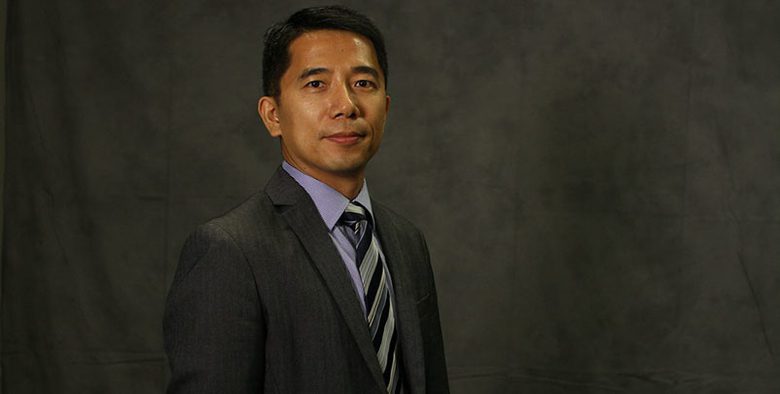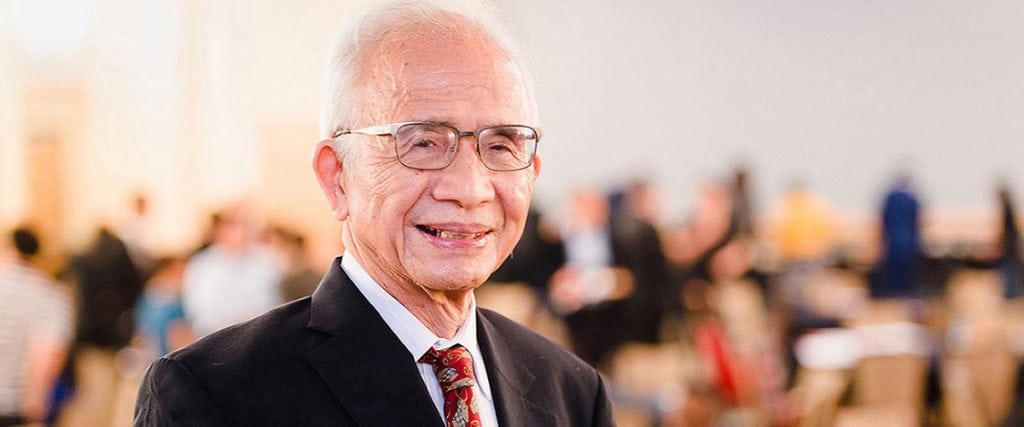Energy Conservation, Healthcare Struggles, and More – New York News

Let’s explore some of the most interesting stories that have emerged from New York business schools this week.
Do as Your Neighbor Does? Neighbors Caring about the Environment Makes You More Likely to Conserve – Columbia Business School
When it comes to interpersonal decisions, group elements often become a heavy factor, including with conservation.
Columbia Business School Professor Adam Galinsky recently co-authored a new study in Nature Human Behaviour that may offer insight into how to affect meaningful changes toward climate conservation.
By focusing on “second-order normative beliefs,” the researchers illuminate that when it comes to topics like energy conservation, for instance, “what people believe their community members care about is an important predictor of individual conservation behavior, above and beyond people’s own beliefs about energy conservation.”
Galinsky explains, “The evidence shows that policymakers can’t simply ask people to reduce, reuse, and recycle. In fact, trying to reach people with subsidies for environmentally-friendly decision-making can backfire. Instead, the roadmap to improving perceptions of conservation starts with reminding individuals that their neighbors care about it. It’s important to shift the focus from trying to change what people believe to reinforcing what their friends believe.”
You can learn more about the research here.
Faculty Snapshot: Finding a Remedy for Health Care’s Struggles – Rutgers Business School News
The Rutgers Business School recently profiled Assistant Professor of Supply Chain Management and Program Director for the Masters of Science in Healthcare Services Management, Xin (David) Ding, whose research studies “potential ways to increase hospital revenues through process coordination, patient involvement, and the cultivation of a patient safety environment.”

Professor Xin (David) Ding / Photo via business.rutgers.edu
The recent profile in Rutgers Business School News reads:
“While physicians and nurses traditionally have been trained to take care of clinical needs from patients, they don’t necessarily know how to manage operations and businesses well. With the transition from volume-based care to value-based care, supply chain concepts can help care providers maximize value through the optimization of their resource allocations.”
You can read more from the profile here.
In the Future, Everyone Will Be Able to Make Robots – Stevens Institute of Technology SOB News
The Stevens Institute of Technology President’s Distinguished Lecture Series recently hosted prominent robotics and AI researcher Daniela Rus who “challenged the audience to rethink conventional notions of robots.”
“Imagine the limitless possibilities that could arise from the ability to create the machines that can help save lives, improve the quality of life, or transport us to places we cannot go to on our own,” she notes.
“Right now we have the ability to use our technologies, coupled with interesting interfaces, to enable much more extensive capabilities. And while, today, we can begin to use natural language to program machines, how far can we go in connecting us directly to the machine?”
You can learn more about Rus’ research here.
A Stevens’ Therapy Startup for Trauma Victims, and More – New York City News

Let’s explore some of the most interesting stories that have emerged from New York business schools this week.
Mobile Treatment Tools Can Change Way People Recover from Trauma – Stevens Institute of Technology SOB News
The Stevens Institute of Technology School of Business recently profiled Mira Therapeutics, a new homegrown startup that uses tech to “help patients manage their symptoms, and give therapists powerful new treatment tools.”
Co-founded by Stevens students CJ Internicola, Seth Kirschner, Gregory Mercado, Nicholas Gattuso, and Annika Roll, the startup’s interactive Mira mobile app “guides patients through crises like flashbacks, anxiety attacks, and dissociation using clinically-established grounding techniques.
Specially designed for veterans, sexual assault survivors, police officers, medical providers, and many other people living with trauma, Mira also records progress by “automatically tracking symptoms and suggesting daily journal prompts.”
Internicola writes, “There are thousands of mobile apps on the market that improve mental health. We are creating technology that addresses problems unique to people living with PTSD. Mira is positioned to become a holistic improvement in the way people recover and grow from trauma.”
“We want to create technology that improves everyday life, translates into better therapy sessions, and ultimately, ameliorates suffering.”
You can find out more about the therapy startup here.
Democratizing Finance and the Unexpected Future of Fintech – Gabelli Connect
PayPal CEO Dan Schulman recently visited the Gabelli School of Business to share his insights about fintech at an event co-sponsored by the Gabelli Center for Global Security Analysis titled “Democratizing Finance: Expanding Access Through Fintech.”
Schulman told the audience, “We have a mission, which is democratizing financial services. It’s very inclusive [and it’s] about all citizens having access to the digital economy…probably the most important value for us is inclusion and diversity. Because if we have a mission that includes all citizens, we need to represent that as a company.”
Center for Financial Services Innovation president and CEO Jennifer Tescher used the event as an opportunity to talk about diversity in fintech—or lack thereof.
“I would say that, why don’t we have more women anywhere? I think it’s a particular challenge in the world of engineering, which cuts across any tech. Why don’t we have more women in financial services, forget about fintech. I think it’s a huge problem.”
You can find out more about the recent event here.
Summit Explores Future of Selling in a Digital World – Rutgers Business School News
As part of a summit that focused on “the future of selling in the digital world,” the Rutgers Business School recently hosted two panels comprised of a diverse array of sales executives:
Panel #1
- Phil Cohn, Senior Vice President of U.S. Sales for Samsung
- Jeff Clachko, Senior Vice President for NBC Sports Ad Sales
- Gary Carleton, President of Sales-Healthcare for UPS
- Tolga Akcura, Co-Founder of eBrandValue
- Joel Silverman, Executive Vice President and General Manager of Synchronoss Technologies
Panel #2
- Rita Fawcett, Vice President of Cardiovascular Sales for Bristol-Myers Squibb
- Frank Palumbo, Senior Vice of Cisco’s Global Date Center Sale
- Rahsan-Rashan Lindsay, Executive Vice President, TV One
- Jim Sterbenz, Senior Vice President of U.S. Sales at Campbell Soup
The first panel “delved into the role of analytics, metrics and customer relationship management for sales professionals” while the second panel focused on the “challenges and opportunities in sales as a result of technology.”
The keynote speaker was Cocoa Exchange President John Wycoff who extolled the virtues of the growing gig economy, which forecasts to have 7.7 million workers by 2020 due in large part to the growth of digital sales tools.
You can find out more about the recent event here.
NYU Stern Director of Admissions Answers 5 Questions

In our latest installment of the MetroMBA “5 Questions” series, we speak with Lauren Calio, Director of MBA Admissions at NYU Stern. She was kind enough to respond to our questions and share insight into what it’s like to attend Stern for an MBA.
1. How would you describe the culture of NYU Stern? Is it more collaborative or competitive?
“The culture at NYU Stern is absolutely collaborative. So much so that “Collaborative Community” is one of our four core values. We believe that collective efforts lead to greater success both inside and beyond the classroom. As an example, we often hear stories of students helping their classmates prepare to interview for roles that they themselves are also interviewing for. If they are not hired for a role, they want another Sternie to get that position. Another one of our core values is ‘IQ + EQ.’ Because we seek exceptional individuals with not only intellectual strengths but also high emotional intelligence, a collaborative spirit and desire to drive change together is ingrained in our student body, faculty, and administrators.”
2. What type of student is the best fit for NYU Stern’s MBA program?
“Students come to Stern with a passion for the School and experience from a wide range of industries and functions, and they aspire to land in a variety of post-MBA roles. Some are career switchers, others are not. Regardless of their experience or career goals, applicants should be able to highlight and quantify their accomplishments and clearly explain to the Admissions Committee their career goals and how they plan to achieve them. Beyond work experience and goals, a common thread among our students is their high emotional intelligence or EQ, and engagement in our collaborative community. We also pride ourselves on being a school where everyone can be themselves. Our students’ interests outside of the classroom are also vast, as evidenced by our 30+ student clubs serving professional, affinity, sports, and special interest areas.”
YOU MAY ALSO LIKE: GMAT Scores, International Students Jump at NYU Stern
3. If there was just one piece of advice you could give to an MBA applicant considering NYU Stern, what would it be?
“Connect with the Stern community. Get to know our community and our culture by speaking to current students, alumni, and the admissions team; attend a class visit; explore campus by coming for a tour and information session. This will help you picture yourself at Stern. If you are not able to make it to New York, you can connect with our current students virtually. They can share their experiences and provide an honest perspective on how their time at Stern has helped them grow both personally and professionally.”

“If you are not able to make it to New York, you can connect with our current students virtually. They can share their experiences and provide an honest perspective on how their time at Stern has helped them grow both personally and professionally.”
4. How accessible are NYU Stern professors? Do they frequently serve as mentors?
“Stern professors are very accessible. We have over 300 faculty members across industries, which means that students can connect with faculty in the areas they are passionate about. Faculty members are available to students and are often involved with projects and experiential learning opportunities, what we call Stern Solutions, working alongside students. Our faculty include top researchers, four Nobel laureates, and senior business leaders, some of whom are working in industry by day. My advice to students is to take advantage of this accessibility to build relationships while you are at Stern that will extend beyond your time here. Make your professors a part of your network.”
5. Where can you get the best NYC pizza near campus and where’s the best coffee shop for studying?
“These questions come up frequently in our office, and every person has a different answer. Being in the heart of NYC, we are surrounded by an abundance of pizza places and coffee shops. One of my favorite places to sit and get a pie is Numero 28. Their pizzas come in different sizes (up to 29”!), and you can mix and match toppings. Kopi Kopi is a cute coffee shop on West 3rd Street, right near campus.”
The Perfect MBA Career: Portfolio Manager

If working in investment strategy seems appealing, then a job as a portfolio manager may be right for you.
3D Printing Research, Success Without Passion, and More – New York News

Let’s explore some of the most interesting stories that have emerged from New York business schools this week.
Award-Winning Paper Explores How Designers Innovate in 3D Printing Communities – Stevens Institute of Technology SOB News
In a new paper from Gaurav Sabnis, Stevens Institute of Technology School of Business Assistant Professor of Marketing, Associate Dean of Research Dr. Jeffrey Nickerson, and the University of Navarra’s Dr. Harris Kyriakou “examines knowledge reuse in 3D printing communities [where] makers often iterate on designs created by other users to create refined products.”
According to the Stevens Institute of Technology SOB News article, “the professors looked at frequently reused designs and found a few clear signals in what helps designs get shared—from a designer’s level of experience, to the amount of information she included about her designs.”
The trio’s research is among the first to properly survey 3D printing communities and it could have only happened in the interdisciplinary incubator that is Stevens. Dr. Sabnis writes, “Stevens has a great culture that leads to more interdisciplinary research. I’m excited to do the kinds of research that creates real-world solutions for businesses in the digital age.”
You can read more about the 3D printing research from Stevens here.
Reviving Grit: Columbia Business School Study Finds That In Pursuit of Success, Dedication Falls Short Without Passion – Columbia Business School News
In a new PNAS study, Columbia Business School and Frankfurt School of Finance & Management researchers found that grit “without the clear sense of direction that passion provides does not propel people forward.”
Columbia Professor and co-author Adam Galinsky writes, “We were not surprised to find that dogged dedication to an objective – without a true passion for the goal – is mere drudgery.”
“But until now, research on grit failed to factor in the propulsive force that animated grit’s perseverance. By properly incorporating passion into the grit equation, we now have evidence that people who are passionate for their goal and persevere towards it will reach higher heights.”
You can find Why Grit Requires Perseverance and Passion to Positively Predict Performance here, and discover more fro the Columbia Business School News article here.
Where Professors Share Knowledge on Issues in Finance, Economics and Accounting – Rutgers Business School News
The Livingston Student Center recently hosted the annual Conference on Pacific Basin Finance, Economics, Accounting, and Management, which was founded by Rutgers Business School Distinguished Professor of Finance and Economics Cheng-Few Lee at the business school in 1992.

Rutgers Business School Distinguished Professor of Finance and Economics Cheng-Few Lee / Photo via business.rutgers.edu
The conference assembles “finance professors from around the world” to absorb “research on a variety of issues, from financial applications of parallel processing to the ethics of cryptocurrency.”
According to the Rutgers Business School News article, “Many of the conference speakers were Professor Lee’s former colleagues or students, including professor Yong Shi, who is one of 13 advisors to China’s premier, [and] delivered a keynote address on big Data Mining and Knowledge Management.”
You can read more about the event here.
Columbia Revisits The Great Recession, and More – New York News

Let’s explore some of the most interesting stories that have emerged from New York business schools this week.
Showing Discipline with Kindness, Compassion to Employees Results in Better Job Performance, Research Shows – Binghamton University School of Management
New Binghamton SOM research reveals that leaders who show “no compassion to employees doesn’t bode well for their job performance, while showing compassion motivated them to be better workers.”
Binghamton Assistant Professor of Management Chou-Yu Tsai and his coauthors “surveyed nearly 1,000 members of the Taiwanese military and almost 200 adults working full-time in the United States” to review the subordinate performance that sprang from Authoritarianism-dominant, Benevolence-dominant, and Classical paternalistic leadership styles.
Tsai explains, “Being benevolent is important because it can change the perception your followers have of you. If you feel that your leader or boss actually cares about you, you may feel more serious about the work you do for them.”
“Subordinates and employees are not tools or machines that you can just use. They are human beings and deserve to be treated with respect. Make sure you are focusing on their well-being and helping them find the support they need, while also being clear about what your expectations and priorities are. This is a work-based version of ‘tough love’ often seen in parent-child relationships.”
You can watch a video on the research below.
A Food Scientist Pursuing a Rutgers MBA Creates Perfect Life Nutrition – Rutgers Business School News
Perfect Life Nutrition founder and current Rutgers Business School MBA Juan Salinas talks about how his path to food science led him to take home the $20,000 top prize at this year’s Rutgers Business Plan Competition.
A native of Honduras, Salinas worked at Nabisco, Cadbury, and Power Bar, where he “combined his expertise in food science with knowledge he gained in sports nutrition working on a master’s offered by the International Olympic Committee.”
He left the corporate ringer in 2015 to start Perfect Life Nutrition and its flagship P-nuff Crunch Baked Peanut Puff, a plant-based protein snack that satisfied Salinas’ desire to make something “tasty and nutritious.”
According to the Rutgers Business School News, Perfect Life Nutrition has since “pushed out two new versions of P-nuff Crunch, both are peanut-based but one is cinnamon-dusted and the other is flavored with cocoa.”
You can read the rest of Salinas’ article with Rutgers Business School here.
Dodd-Frank a Flop: Columbia Business School Study Recommends Fundamental Reforms for Landmark Financial Regulation – Columbia Business School
A decade after the Great Recession hit, new Journal of Applied Corporate Finance research from CBS Professor Charles Calomiris unpacks “numerous flaws in post-crisis financial regulations and proposes modifying or eliminating a number of recently approved financial reforms, including pieces of Dodd-Frank and the Volcker Rule.”

Lehman Brothers’ collapse in 2008 was among the first major signs of massive economic distress – Photo via Oli Scarff/Getty Images
In a recent interview with the school, Calomiris explains, “The Great Recession created a rush in Washington to establish guardrails for the financial industry. But good intentions, expanded powers, and new mandates do not necessarily lead to smart policy decisions.”
“Ten years later, it’s clear that the Dodd-Frank Act and further regulations are failing to curb risky behavior while obstructing economic growth. We can do much better than these costly, unsustainable regulations that will do little to prevent a repeat of the financial crisis.”
Calomiris proposes nearly two-dozen reforms to current regulations, including:
- “Linking financial regulation directly to the performance of the financial sector and demonstrate that regulatory costs are justified by measurable benefits.
- “Restoring the role of laws and formal rule-making in financial regulation and end the discretionary authority of politicized actors like the FSOC and the Consumer Financial Protection Bureau.”
- “Holding regulators accountable to the public by requiring transparent regulatory standards.”
Has Financial Regulations Been a Flop? (or How to Reform Dodd-Frank) can be found here.
